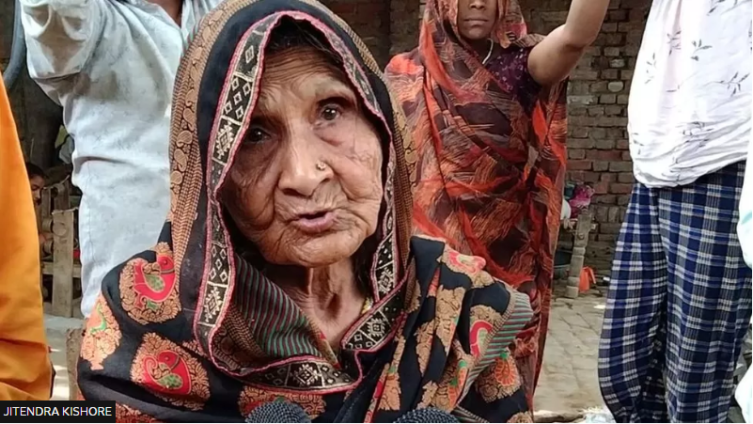Last week, a 90-year-old Indian villager was sentenced for life in prison for the murder of 10 people in a caste crime that took place 42 years ago. Families of the victims say the court judgement has come far too late to hold any meaning for them and legal experts say this is a classic case of "justice delayed, justice denied".
The evening of 30 December 1981 is etched in the memory of the oldest residents of Sadhupur village in the northern state of Uttar Pradesh.
"A group of men entered the compound of my house around 6:30pm and started firing," says Premvati. She's not sure about her age but believes she's around 75 years.
"They didn't ask me anything, they just began spraying bullets at us," she says, adding that within minutes, three of her children - sons 10 and eight years old and a 14-year-old daughter - lay dead around her.
To photographers and cameramen who visited the village after the court order, Premvati showed her right leg where she had received a bullet injury. The wound has healed, but the scar remains.
Her children were among the 10 members of the Dalit community (formerly untouchables) who were killed that evening. Premvati was among two women who were injured.
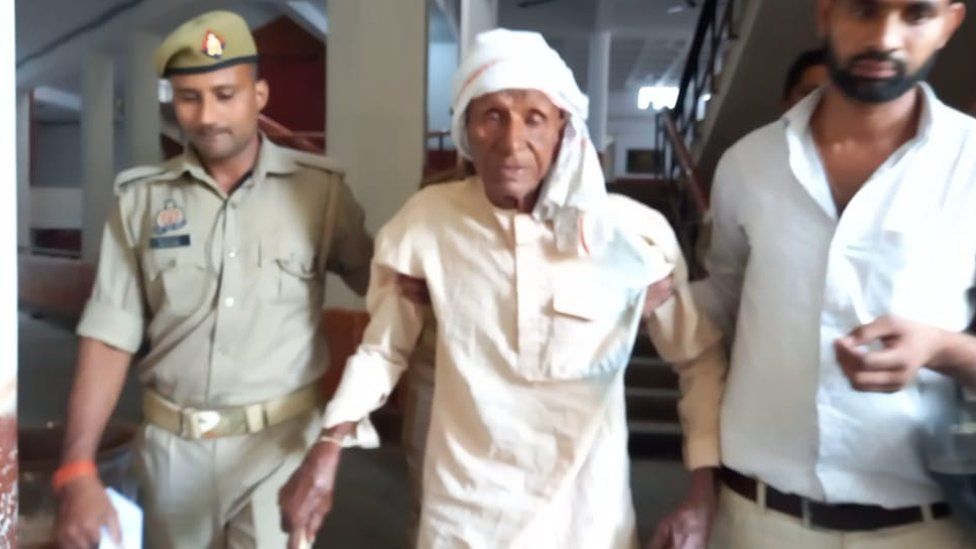
Last Wednesday, Judge Harvir Singh of the district court in the town of Firozabad sentenced the only surviving accused Ganga Dayal, a member of the Yadav caste, to life imprisonment. Dayal was also ordered to pay a fine of 55,000 rupees ($668; £533) - if he failed to pay up, he would have to spend an additional 13 months in jail.
The judgement noted that nine of the 10 accused had died during the course of the trial. Lawyer Rajeev Upadhyay who represented the government in court told me that many of the prosecution and defence witnesses also died in the interim.
With more than four decades passed between crime and punishment, the contours of the case have become rather fuzzy.
Premvati and other Dalit villagers insist that their families had no enmity with anyone. But Mr Upadhyay said it was believed that relations between the castes had soured after some Dalits had complained about a ration shop owned by a member of the Yadav caste and that led to the violence.
The crime had made headlines at the time and villagers said they were visited by the then prime minister Indira Gandhi and the state's chief minister Vishwanath Pratap Singh who had promised them justice.
Senior leader from the opposition Bharatiya Janata Party Atal Bihari Vajpayee - who later served as India's prime minister - had marched to the village to protest against the murders.
"He said he couldn't bring our dead back to life, but promised to help us get justice," Premvati said, adding that the villagers found out about the conviction from journalists who came to ask for their response to the court verdict.
"Only God knows if this is justice," she told them.
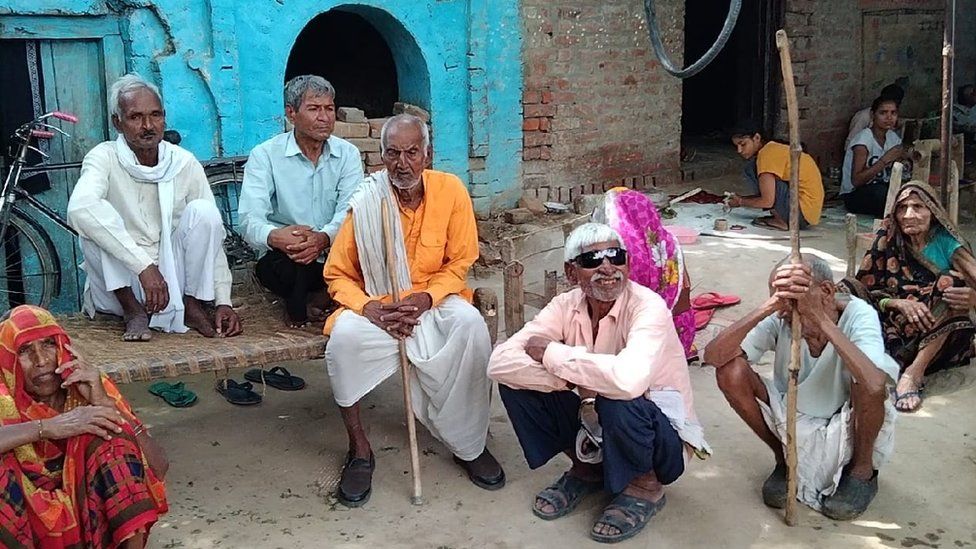
Maharaj Singh, Premvati's much younger neighbour who also lost family members and grew up hearing stories of "that evening's carnage", said "we appreciate that we have finally got justice, but it didn't come at the right time. We would have been happier if we had received justice in time".
"It took the courts 42 years to deliver justice. If a conviction had come in five-six years, then our elders would have died in peace," he added.
Mr Upadhyay says the case took so long to come to conclusion because at the time of the murders, the village where the crime took place was part of a district called Mainpuri. But in 1989, it became a part of the newly-created Firozabad district.
The case files lay forgotten in Mainpuri until 2001 when it was moved to the Firozabad court on orders from the Allahabad high court.
The hearings, Mr Upadhyay says, began only in 2021 as part of a government drive to clear out the backlog in courts and conclude old cases on an urgent basis.
"The government and the judiciary are trying to send a message to the public that law will catch up with you if you commit a crime," he says.
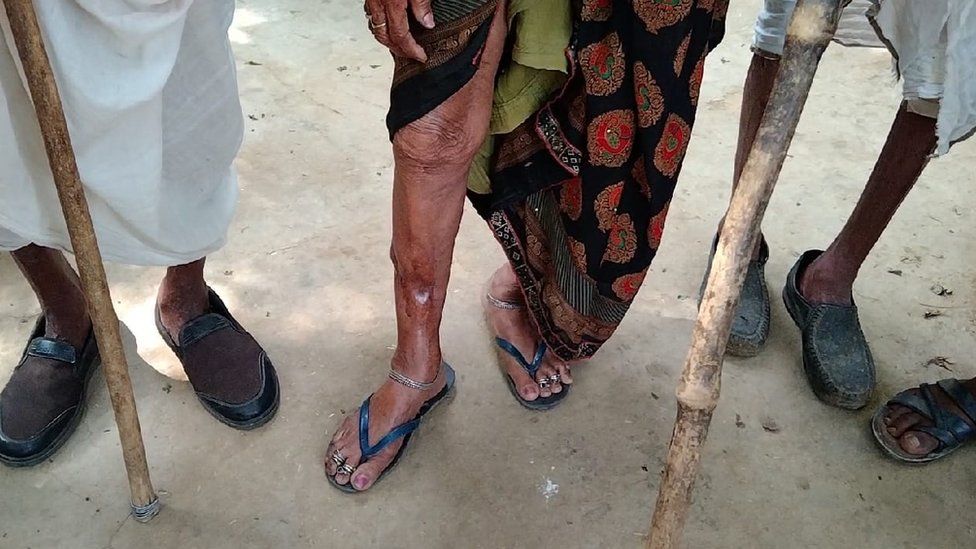
Lawyer Akshat Bajpai, however, says justice has to be timely.
"This is indeed a case of justice delayed, justice denied. People can appreciate a delay of two-three years, but 40 years?"
Mr Bajpai says "the state has the responsibility to deliver timely justice especially to people like Premvati as they are Dalits who are among the most marginalised people" in the country.
"It's the failure of India's criminal justice system that the victims and their families had to live in agony for 42 years," he adds.
This is not the only court case that has taken so long to come to fruition. Indian criminal justice is known for being tardy and many citizens say they resent the fact that court cases often go on for years, even decades.
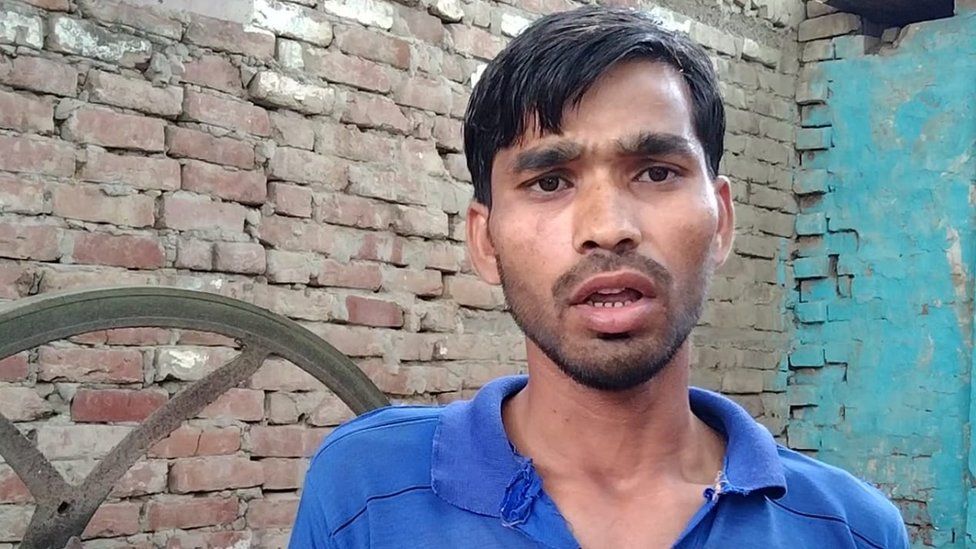
This has led to a massive backlog of unresolved cases. In February, the government informed the parliament that there were nearly 50 million pending cases across Indian courts.
MA Rashid, an expert on Indian criminal law and founder of Live Law website, says the biggest cause for delay is the lack of adequate number of judges.
"The judge to people ratio in India is very low and the load per judge is humungous. So trials take a long time to conclude."
Mr Rashid also blames "archaic procedures" which are time consuming and delay the examination of witnesses - for instance, a judge still has to write down with hand the testimonies despite the advent of technology.
Appeals, he says, in the high court usually take at least five to 10 years to get listed for a final hearing - and then an equal number of years in the Supreme Court.
"So cases where convicts get acquitted after 20 or 30 years at the appellate stage are also not uncommon in India," he adds.
Latest Stories
-
Bills Microcredit boss acquires custom jet and Bugatti for 40th birthday
33 minutes -
JoySports National Dialogue: We need clear policy to promote Recreation – Mawuko Afadzinu
2 hours -
NSA cannot manage the Aquatic Centre at Borteyman Complex – Farida Iddriss Gindo
2 hours -
Ghana needs a stronger maritime industry to boost economy – Chamber of Shipping President
2 hours -
From scarcity to sustainability: Addressing the global water crisis
2 hours -
JoySports National Dialogue: Intentional leadership can fix our problems – NSA boss
2 hours -
2025 budget lacks credibility – Oppong Nkrumah
2 hours -
Galamsey Fight: 56 persons arrested, 25 Changfang machines set ablaze in Western Region
2 hours -
Daily Insight for CEOs: Strategic risk management – Protecting business growth in uncertain times
2 hours -
We must establish ‘PPP National Sports and Entertainment Hub’ – Vernon
2 hours -
I don’t support the idea of gov’t going to the bond market – Dr Baafi
3 hours -
Cover the pitches when there are activities – Anthony Baffoe advises
3 hours -
One dead, 6 injured in accident at Gomoa Assin
3 hours -
With great influence comes even greater responsibility – Omane Boamah at IYES
4 hours -
JoySports National Dialogue: It’s important to get experts for various roles – Anthony Baffoe
4 hours

